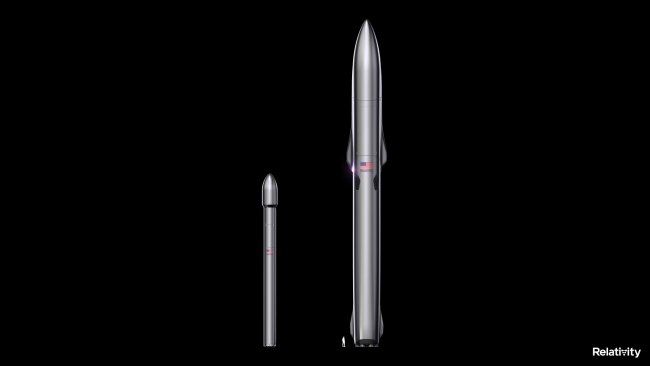
Seattle-based space-exploration company Relativity Space has unveiled plans for its Terran R rocket, a reusable, entirely 3D-printed launch vehicle.
According to the company, the two-stage, 66-metre-tall, five-metre-diameter rocket will be capable of launching a 20,000-kilogram payload into low Earth orbit.
It will be outfitted with seven 3D-printed Aeon R rocket engines capable of producing 137,000 kilograms of thrust each, while its upper stage will house a single Aeon Vac engine.
The company plans to launch the rocket from Launch Complex 16, its site at Cape Canaveral in Florida, from 2024. This year, it hopes to launch its much smaller Terran 1 rocket from the same site.
Both rockets will be built in Relativity Space’s Factory of the Future using the company’s proprietary 3D printing processes, which utilisesoftware-driven manufacturing, exotic materials and unique design geometries that Relativity Space says aren’t possible to produce using traditional manufacturing. The company operates the world’s largest metal printers and says that it can create its rockets from raw material within 60 days.
‘From our founding days in Y Combinator just five years ago, we planned on 3D printing Terran 1 and then Terran R – a 20-times-larger, fully reusable rocket – on our Factory of the Future platform,’ said Tim Ellis, CEO and co-founder of Relativity Space. ‘Today, we are one step closer to this goal.
‘Together with our first rocket, Terran 1, our second product, Terran R, will continue to take advantage of Relativity’s disruptive approach to 3D printing – reduced part count, improved speed of innovation, flexibility and reliability – to bring to market the next generation of launch vehicles,’ he continued. ‘Relativity was founded with the mission to 3D print entire rockets and build humanity’s industrial base on Mars. We were inspired to make this vision a reality, and believe there needs to be dozens to hundreds of companies working to build humanity’s multiplanetary future on Mars. Scalable, autonomous 3D printing is inevitably required to thrive on Mars, and Terran R is the second product step in a long-term journey Relativity is planning ahead.’
According to Relativity Space, which recently raised US$65million to scale up the Terran R programme and undergo long-term infrastructure development, Terran R will eventually offer customers a point-to-point space freighter capable of undertaking missions between the Earth, the Moon and Mars.



